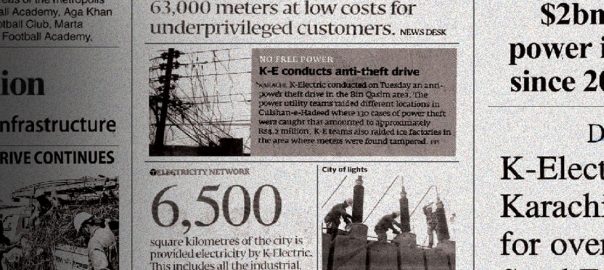Karachi, July 25, 2020: K-Electric (KE) has reiterated that no unscheduled load-shed is being carried out in any part of the city. Segmented load-shed (SLS) which is in line with the National Power Policy 2013 to address the issue of pervasive power theft and load-management which is on account of power shortfall follow a schedule which is duly notified to registered customers via SMS and is also available on the KE website.
Segmented Load-shed is based on the theft-profile of areas and is determined by the aggregate technical & commercial (AT&C) losses in any area. Due to KE’s efforts of theft reduction today over 75% of Karachi is exempt from scheduled load-shed, while load-shed hours in remaining areas vary with the degree of power theft. Even in Very High Loss (VHL) areas, where losses extend above 45%, K-Electric supplies power up to 15~16 hours despite incurring losses and load-shedding does not exceed 7.5~8.5 hours. The power utility conducts a periodic review wherein it evaluates the loss of each area and profiles it as high or low loss respectively. To counter power theft, c. 9,000 Pole-Mounted Transformers (PMTs) have been converted to Aerial Bundled Cables and regular kunda removal drives are also carried out. This year alone, close to 200,000 kg of illegal wires have been removed from electricity infrastructure in areas including Malir, Landhi, Korangi, Orangi, Baldia and Lyari. These efforts to address the societal menace of power-theft supplemented by community engagement have been successful in shifting areas such as Altaf Town and Ghazdarabad from high loss to low loss and resulted in Transmission and Distribution (T&D) losses reduction from 36% in 2009 to 19.7% in 2020.
While load-shed is routinely carried out in areas with pervasive power-theft and is independent of power supply, in contrast, load-management is necessitated in unavoidable circumstances when the gap between power supply and demand widens for a brief duration. While circumstances outside KE’s control such as delayed regulatory and governmental approvals for power projects, inconsistent fuel quantities, low gas pressure and constrained supplies from various Independent Power Producers (IPPs) have led to the current difficult position that KE is in, the power utility remains committed to serving its customers. In an effort to provide relief to its residential customers during the late-night hours, KE has managing load through industrial load-shedding despite this impacting negatively on the company’s financial health and profitability. At the same time K-Electric is moving forward with an ambitious investment plan which would see USD 2 bn spent across the power value chain over the next three years, including a 900 MW RLNG-fired power plant as well as downstream transmission and distribution upgrades. In order to evacuate additional power from the national grid on priority, K-Electric will also be investing in interconnection infrastructure and has already sought necessary regulatory and governmental approvals. Following the timely receipt of the same, close to 2100 MW will be added to Karachi’s power supply by 2023 moving the city into a power surplus position.


